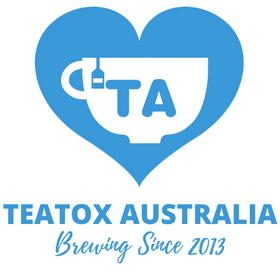For some of us, eating is a boring but necessary task for our survival--for others though, eating is an indulgence and possibly an obsession. If you have a complicated relationship with food and belong to second category of people, these statements will likely sound familiar:
-I think of food all the time
-I’m feeling hungry all the time
-I always prioritise food over other important physical tasks e.g. sleep, workout, rest
-I often give in to my cravings, even though I know they are bad for me
-I always eat something when I’m stressed or sad
-People tell me I can’t control myself when I eat
If the last time you’ve eaten something was a couple of hours ago but you feel like eating again, there may be a psychological or physical factor that is triggering this perceived “hunger”.
So here are the most common reasons why you may feel hungry all the time:
No.1: You have confused appetite with hunger. Sometimes, we may feel hungry but we are actually having an increased appetite to eat. It doesn’t mean that your stomach is empty and that you need to fill it again. If there is no emotional trigger that makes you feel that way (stress, anxiety, fatigue) or if you have taken a full meal 1-2 hours ago, it just means you have a high appetite. Having a high appetite is usually not a cause for concern in itself, but if you can’t control yourself, you may seek professional help as there may be an underlying mental or health problem behind your insatiable appetite.
No.2: You have a very fast metabolic rate. Some people are naturally blessed with a fast metabolism, especially younger people under the age of 40. You’ll know you belong in this group if you eat more than 5 times a day but you don’t gain a single pound of body fat. As your system digests food and burns calories faster than usual, you may find yourself feeling hungry, even if your last meal was just 2 hours ago. In moments like these, eating a quick healthy snack to ease your hunger and keep you energised for a few hours will help. As long as you are generally healthy, there is no need to worry about this.
No.3: You are trying to combat daily stress with eating. Women especially have the tendency to react to stress by binge eating, only to feel worse than before. Sure, munching on a pack of crisps or a big bowl of chocolate ice cream will make you feel better for a few moments but it doesn’t solve your stress problem nor does it do any good to your health and waistline. In this case, it may be best to address the problem with the help of a healthcare or mental healthcare professional. This will help you address the root cause of your stress and find alternatives
No.4: You don’t eat enough high-quality protein from your diet. Many vegans, especially during the early stages of following a vegan diet, feel more hungry than before and there is a common reason why: they don’t get enough protein from their diets. As high-quality proteins are mainly found in animal courses and you need to consume approx. 0.8 grams/kilogram of body weight, anything less than that will make you feel hungry. However, if you don’t want to ruin your vegan diet, try combining various plant protein sources together such as legumes, nuts, and seeds.
No.5: You eat too many carb-rich and processed foods. Remember back in your student years where you often ate pizza, burgers, macaroni,and microwave meals? All these fast food and processed items may taste good, but they will just overfill your belly for a couple of hours because of their high carb content. Simple carbs are metabolised faster in our systems and they often lead to sudden sugar and energy spikes, only to go down later, just as quickly as they started. The result is feeling tired and hungry, even if you consumed more than 1000 calories in a single meal. A healthier alternative to carbs that will keep you fuller for longer is to consume complex carbs and healthy fatty foods such as avocados, carrots, chickpeas, sweet potatoes, nuts and seeds.
No.6: You may have hormonal issues. Hormonal issues, especially in women, are associated with increased appetite, bloating, and weight gain among other symptoms. An imbalance in insulin, leptin, blood sugar, ghrelin, cortisol, and oestrogen hormone levels will make you feel tired and hungry for longer periods of time. Common hormonal conditions that lead to the above imbalances include hypothyroidism, Polycystic Ovary Syndrome (PCOS) in women, grave’s disease, adrenal fatigue, diabetes, and autoimmune disorders. If you suspect that you have a hormonal imbalance, consult a healthcare professional and get tested to verify if you actually have a hormonal condition or not.
No.7: You are actually thirsty, not hungry. In some cases, our body sends the signal we need more water but our minds perceive it differently, making us feel hungry instead. The same region in your brain that is responsible for sending thirst signals, sends hunger signals as well, which is why you are getting mixed signals, even if you just need to quench your thirst. If you are not sure whether you are hungry or thirsty, try drinking some water, tea, or a nutrient-rich smoothie and see if this makes you feel any less hungry after a few minutes. Avoid drinking sugary drinks as these will lead to sudden sugar spikes and you will end up feeling thirstier and possibly hungrier than before.
Did you know that certain herbs can suppress your appetite and detox your body for good? Try our 14-teatox challenge and see the results yourself!!
